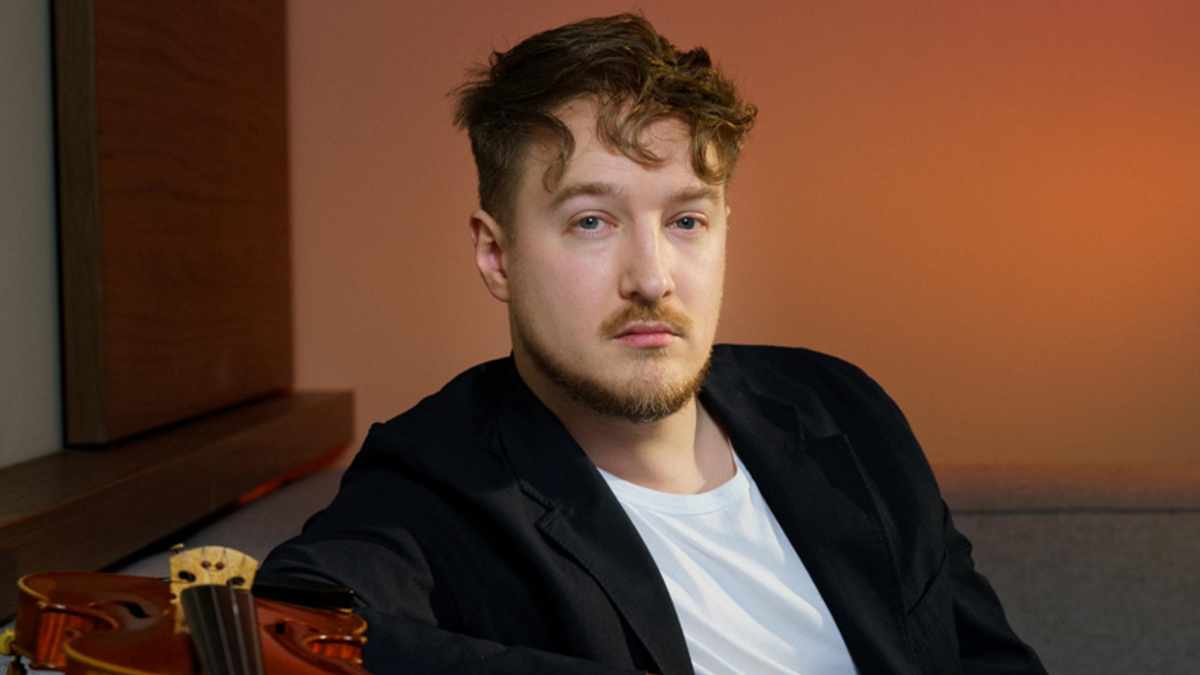Daniel Pioro: Redefining the Violin for a New Generation

In the ever-evolving landscape of classical music, few figures have emerged with as much intrigue and artistic depth as Daniel Pioro. A British violinist known for his fearless experimentation, genre-defying performances, and a rare ability to meld traditional repertoire with modern aesthetics, Pioro stands at the forefront of a musical renaissance. His journey from classical purist to bold innovator has captured the attention of global audiences, critics, and collaborators alike. With a profound respect for the past and an insatiable curiosity for the future, Daniel Pioro is not just playing the violin—he is reinventing it.
Early Life and Musical Roots
Daniel Pioro’s musical journey began in the UK, where he was introduced to the violin at a young age. As with many virtuosos, his talent was evident early on. What set him apart, however, was not only his technical prowess but also his deep emotional connection to sound. Pioro quickly moved through the ranks of conventional musical training, but even in his formative years, he showed signs of wanting something beyond the standard concerto circuit.
Unlike many of his peers who found comfort in the established canon, Pioro was drawn to the spaces in between—the silence between notes, the dissonance, the imperfections. These early inclinations hinted at a future career that would be defined by boundary-pushing collaborations and an unshakeable commitment to artistic authenticity.
Education and Artistic Development
Pioro’s formal education provided a strong foundation in classical music, yet it was his exposure to a wider range of artistic influences that truly shaped his style. He has always spoken about the importance of listening—really listening—to everything from Gregorian chant to contemporary electronica. This eclectic musical palette allowed him to approach the violin not just as a classical instrument but as a versatile tool for storytelling.
A key moment in his development was his involvement with Bedroom Community, a creative collective and label based in Iceland. Working with producers such as Valgeir Sigurðsson opened new sonic worlds and production techniques, leading to the creation of his debut album Dust, a haunting, minimalist work that blurs the line between acoustic performance and electronic sound design.
An Unconventional Repertoire
One of the hallmarks of Daniel Pioro’s career is his unconventional choice of repertoire. While he has performed canonical works by Bach and Britten, he is equally at home with contemporary composers such as Jonny Greenwood, Tom Coult, and Cassandra Miller. In fact, Greenwood—famed for his work with Radiohead—has publicly praised Pioro as the “sound in my head” when composing for violin.
This breadth of musical engagement is rare and refreshing. Pioro’s willingness to juxtapose ancient and modern, sacred and secular, resonates strongly with 21st-century audiences who crave more than tradition for tradition’s sake. His concerts are less about recreating the past and more about interrogating the present.
The Power of Collaboration
Pioro thrives in collaborative environments. Whether performing with the Manchester Camerata or engaging in storytelling projects with author Michael Morpurgo, he seeks out artistic partnerships that challenge and expand his musical vocabulary. His reimagining of Vivaldi’s Four Seasons, done in collaboration with Morpurgo, is a prime example of how he uses narrative to breathe new life into familiar compositions.
In that project, music and storytelling are interwoven to explore climate change, human responsibility, and the cyclical nature of life. Such thematic boldness is part of what makes Pioro stand out. He’s not interested in passive entertainment—he wants his art to provoke, inspire, and transform.
Exploring New Sonic Landscapes
Beyond his work with traditional ensembles, Pioro is an adventurous solo artist. His solo performances are notable for their intimacy and rawness. He is known to perform unaccompanied in both grand concert halls and unconventional venues such as old chapels, galleries, and industrial spaces.
His use of electronics and looping pedals during live shows creates immersive soundscapes that can be meditative, unsettling, or transcendent. These performances are deeply personal experiences, for both the artist and the audience. Here, the violin becomes an extension of his voice—capable of whispering, screaming, crying, or rejoicing.
Recording Career and Critical Acclaim
Daniel Pioro’s discography, though still growing, reflects his experimental ethos. His debut album Dust was met with critical acclaim for its sparse beauty and emotional intensity. Critics praised the album not just for its technical execution but for its conceptual depth. It feels less like a record and more like an ambient journey through memory and emotion.
More recently, Pioro released Saint Boy, a collection that contrasts secular and sacred music, bridging liturgical chants with contemporary minimalism. This juxtaposition forces listeners to confront the ways in which music has always been a vehicle for spirituality, identity, and introspection.
Reviewers from major publications like The Guardian and BBC Music Magazine have consistently lauded Pioro’s originality and integrity. Rather than chase trends or court popularity, he remains resolutely true to his artistic instincts—a stance that, paradoxically, makes him more relevant than many of his contemporaries.
Reimagining the Role of the Violinist
Traditionally, the violinist has often been cast as a soloist, a leader of orchestras, or a chamber musician. Daniel Pioro is redefining that role. To him, the violinist is also a philosopher, a provocateur, and a collaborator. He is deeply involved in the curation of his performances, often integrating spoken word, visual art, or thematic elements into the experience.
His approach is holistic and multidisciplinary. For Pioro, music doesn’t exist in isolation—it is part of a broader cultural, ecological, and emotional ecosystem. This makes his work particularly resonant in a time when audiences are seeking connection, meaning, and mindfulness in their engagement with the arts.
Educator and Advocate for New Music
Daniel Pioro is not only a performer but also an educator and advocate for new music. He is committed to introducing younger generations to the richness and diversity of sound. Through workshops, masterclasses, and community outreach, he demystifies contemporary music and encourages experimentation.
He frequently speaks about the importance of listening—not just to music, but to each other, to silence, and to the world around us. This philosophy underpins everything he does and contributes to his reputation as not merely a musician, but a thinker and leader in the field.
Future Projects and Legacy in the Making
Though still in the relatively early stages of his career, Daniel Pioro has already left a profound mark on the world of music. Future projects include new commissions from emerging composers, continued collaborations with major orchestras, and experimental multimedia performances.
He is also working on expanding his discography with more recordings that challenge the listener’s expectations and delve deeper into themes of identity, environment, and human emotion.
If his current trajectory is any indication, Pioro is poised to become one of the defining voices in 21st-century classical music—not because he plays louder or faster than others, but because he plays more honestly.
Conclusion
Daniel Pioro is not just a violinist; he is a visionary. In an era where music can often feel commodified and formulaic, his work stands as a testament to the power of art to question, heal, and transform. Through a blend of old and new, simplicity and complexity, he invites listeners into a world where every note matters and every silence speaks volumes.
As classical music grapples with its future, artists like Pioro provide not just hope but a roadmap. They show us that innovation and tradition are not enemies but allies—that the violin, in the right hands, can still surprise us. And in doing so, Daniel Pioro reaffirms what music has always known: the most powerful performances are those that come from the soul.



